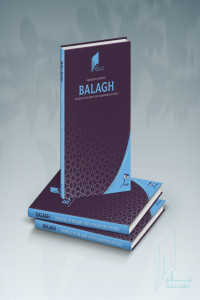Separation Between Spouses Due to Contagious Diseases and its Evidence
Separation Between Spouses Due to Contagious Diseases and its Evidence
Abstract: This research concluded that Islam is keen on the safety of the spouses from ills and defects and prevent the transmission of infectious diseases and epidemics to others. Therefore, the jurists have identified defects that require separation between the spouses, which in their entirety either prevent sexual intercourse because of a defect in one of the spouses. The second, which is the subject of our research, is that these defects are likely to cause harm and danger by transgressing them to others and other things that contradict the purposes of marriage. Hence, it is possible to consider the permissibility of separating spouses, based on what was mentioned in the Holy Book and the Sunnah of the Prophet, as the most correct and chosen saying that is in line with the purposes and general rules of Islam regarding infectious diseases, which have many forms of lethality and destruction of the soul and offspring, foremost among which are AIDS, Corona, gonorrhea, and syphilis. And viral liver, on the grounds that they are serious, fatal, and contagious diseases, they disturb the purposes of marriage, and prevent communication between spouses, unless there is no hope of recovery from them. Hence, the jurists considered these diseases as a defect because the stay of the healthy person with one of these diseases causes great harm to the spouses, children, family, and society. The harm is legally paid, and self-preservation is one of the five necessities that Islam brought
Keywords:
separation, diseases, defects infection, evidence,
___
- أبو الفضل مسلم بن علي الدمشقي (المتوفى في القرن الخامس الهجري ) الفروق الفقهية، دراسة وتحقيق: محمد أبو األجفان - حمزة أبو فارس (الناشر : دار الحكمة للطباعة والتوزيع والنشر، طرابلس – ليبيا، الطبعة: األولى، ٢٠٠٧ م)
- أحمد بن فارس بن زكريا القزويني الرازي أبو الحسين (المتوفى 309 هجري) معجم مقاييس اللغة، تحقيق: عبد السالم محمد هارون (الناشر دار الفكر عام النشر: 1399 ه - ١٩٧٩م)
- أحمد بن محمد بن علي الفيومي، ثم الحموي، أبو العباس (المتوفى نحو 770 ه) المصباح المنير في غريب الشرح الكبير، المكتبة العلمية بيروت.
- أبو الفضل مسلم بن علي الدمشقي (المتوفى في القرن الخامس الهجري) الفروق الفقهية، دراسة وتحقيق: محمد أبو األجفان، حمزة أبو فارس (الناشر دار الحكمة للطباعة والتوزيع والنشر، طرابلس ليبيا الطبعة األولى 2007 م)
- أبو محمد علي بن أحمد بن سعي د بن حزم، األندلسي، القرطبي، الظاهري (المتوفى 456ه) المحلى باآلثار (الناشر دار الفكر بيروت).
- الحسين بن عبد اهلل بن سينا، أبو علي، شرف الملك: الفيلسوف الرئيس (المتوفى ٤٢٨ (القانون في الطب، تحقيق: محمد أمين الضناوي.
- جمال الدين، أبو محمد عبد اهلل بن يوسف بن محمد الزيلعي (المتوفى 762 ه) نصب الراية الحاديث الهداية مع حاشيته بغيت األلمعي في تخريج الزيلعي المتوفى صححه وضع الحاشية عبد العزيز الديوبندي الفنجان، إال كتاب الحج إلى كتاب الحج ثم اكملها محمد يوسف الكاملفوري، تحقيق: محمد عوانة ( الناشر: مؤسسة الريان للطباعة والنشر- بيروت- لبنان/ دار القبلة للثقافة اإلسالمية- جدة- السعودية، الطبعة األولى، ١٤١٨هـ/١٩٩٧م).
- محمد بن إسماعيل أبو عبد اهلل البخاري الجعفي، الجامع المسند الصحيح المختصر من أمور رسول اهلل صلى اهلل عليه وسلم وسننه وأيامه = صحيح البخاري، محمد زهير بن ناصر الناصر (الناشر: دار طوق النجاة، الطبعة: األولى، ١٤٢٢هـ)
- مالك بن أنس بن مالك بن عامر األصبحي المدني (المتوفى: ١٧٩هـ) موط أ اإلما م مالك، تحقيق : بشار عواد معروف - محمود خليل، (الناشر: مؤسسة الرسالة، سنة النشر: ١٤١٢ هـ)
- Başlangıç: 2021
- Yayıncı: Karabük Üniversitesi
Sayıdaki Diğer Makaleler
Contemporary Trends in Criticism of Companions: An Analytical Descriptive Study
Mohamed Amine HOCİNİ, Fouad BOUNAMA
Jawi Writing in Al-Quran and Al-Sunnah Subject at Secondary School; Issues and Challenges
Amrina Rasyada Binti KAMARUZAMAN, Nik Md Saiful Azizi B Nik ABDULLAH
Models for Some Judicial Systems Since the Creation of Mankind to a Good Mission Wilderness
Hossam Moussa Mohamed SHOUSHA, Ashraf MAHMOOD
Separation Between Spouses Due to Contagious Diseases and its Evidence
Hossam Moussa Mohamed SHOUSHA, Radhwan Hasan ALI
Linguistic identity in Palestine between the danger of loss and the inevitability of survival
السيد محمد سالم, رجب إبراهيم أحمد عوض
